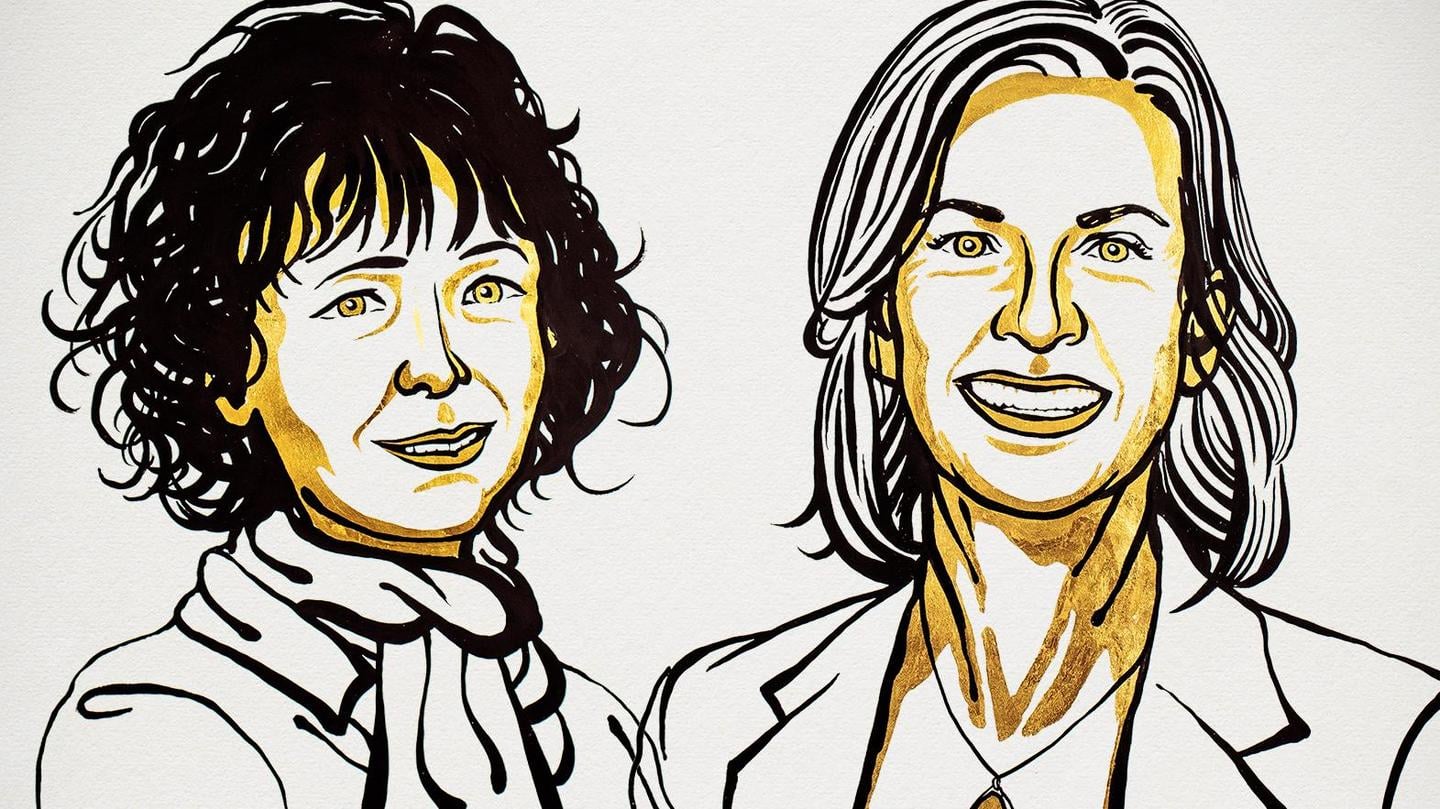
Nobel Prize in Chemistry awarded to makers of gene-editing tools
What's the story
This year's Nobel Prize in Chemistry has been awarded to Emmanuelle Charpentier (51) and Jennifer A. Doudna (56).
A panel at the Royal Swedish Academy of Sciences in Stockholm gave away the prize to the female duo for developing CRISPR/Cas9, a renowned method for programmable editing of genomes (DNA) contained in living cells.
Here is all you need to know about them.
Prize
Prize to be shared jointly
Charpentier and Doudna will share the medal and 10 million kronor ($1.1 mn) prize money, courtesy of a bequest left over a century ago by the prize's creator, Alfred Nobel.
The Academy said the two scientists "have discovered one of gene technology's sharpest tools: the CRISPR/Cas9 genetic scissors. Using these, researchers can change the DNA of animals, plants, and microorganisms with extremely high precision."
Twitter Post
Here's the announcement
2020 Chemistry Laureates Emmanuelle Charpentier and Jennifer Doudna discovered one of gene technology’s sharpest tools: the CRISPR/Cas9 genetic scissors. Using these, researchers can change the DNA of animals, plants and microorganisms with extremely high precision.#NobelPrize pic.twitter.com/BHwD9ktsRU
— The Nobel Prize (@NobelPrize) October 7, 2020
Impact
Major impact on cancer treatment and other fields
Commenting on the importance of the duo's gene-editing technology, Pernilla Wittung-Stafshede, a member of the Academy of Sciences, said, "The ability to cut DNA where you want has revolutionized the life sciences."
It aids the development of new cancer therapies, supports innovative crops capable of withstanding mould/pests, and may even help scientists cure inherited diseases someday in the future, the Academy emphasized.
Work
How they developed CRISPR?
Nearly a decade ago, Charpentier, who hails from France, discovered a previously unknown molecule called tracrRNA in the bacterium Streptococcus pyogenes.
Upon further studies, she determined that tracrRNA is part of bacteria's ancient immune system, CRISPR/Cas, that disarms viruses by cutting their DNA.
After that, the scientist collaborated with Doudna to recreate these genetic scissors in a test tube with simplified molecular components.
Information
Then, they programmed the genetic scissors
While, in their natural form, the genetic scissors cleaved DNA from viruses, Charpentier and Doudna proved that they could be reprogrammed to cut any DNA molecule at a predetermined site and rewrite the code of life, marking the development of the popular gene-editing technique.
First women
First women to win Nobel without male collaborator
Notably, Charpentier and Doudna are the first women to win a Nobel prize without a male collaborator, and overall, they are just the 6th and 7th women to have won the prestigious award.
"When it happens, you're very surprised, and you think it's not real. But obviously, it's real," Charpentier said, adding that she was emotional after learning about her win.